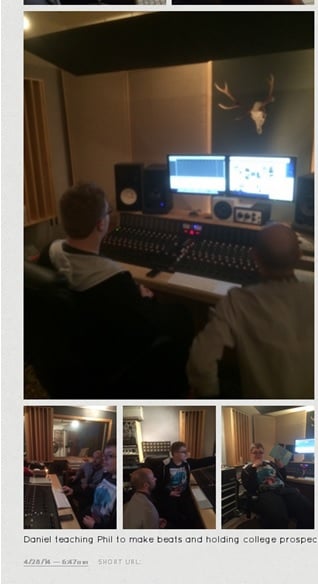
Delivering Arts Award in Libraries

BY: Amy Lee
30 Jan 2023
Libraries are full of resources that young people can use for their Arts Award, and many offer creative or cultural activities that can count towards an Arts Award qualification too. Read on for reasons to deliver Arts Award in your library, and some case studies from centres that are already taking part.
Use Arts Award to:
- add value to your regular activities
Taking part in reading groups and story-telling, doing research through books or online, and going to readings and talks by authors and illustrators can all contribute towards Arts Award. Libraries can offer Arts Award alongside programmes like the Summer Reading Challenge, Chatterbooks and Reading Hack.
- develop new partnerships with local schools, arts practitioners and museums
Arts Award offers libraries a new way to approach schools and a great way to work with local arts professionals. Co-delivery with a local arts centre or museum, or with youth organisations can spread the work too!
- promote your work to your local community
If you aren't able to run Arts Award directly at your library, you could become can become an Arts Award Supporter and promote what you offer to others delivering Arts Award in your area via our dedicated website.
Arts Award provides a framework for projects and offers young people a qualification, which can attract participants and may draw in additional funding. Applications for grant or trust funding may be strengthened if young people are gaining a qualification, helping you cover the costs of training and the qualification fee.
Although Arts Award is a qualification, the only paperwork advisers complete is the 'enrolment and marks' spreadsheet and the process for entering young people for Arts Award.
Arts Award evidence can be captured within delivery using photos, posters, post-its, recordings, and young people can gather feedback via social networks such as Facebook, YouTube, Vimeo and Flickr. They can then collate this evidence in a portfolio or arts log. This can take any format, from a physical folder to on an online platform, like Tumblr or Prezi.
What people are saying:
'Libraries are changing; we need to appeal to a more diverse audience and to show our worth to external funding bodies. We feel that the best way to do this is to embed Arts Award in as much of our delivery for children and young people as we can as it provides excellent evidence to demonstrate the value of the projects we run and something concrete that children and young people can achieve and take forward.
Offering Arts Award both as Supporters and through targeted projects has also enabled us to secure funding locally to support future delivery.' - Arts Award adviser, Staffordshire Libraries
`We had so much fun looking for different art forms in the library and around South Shields. We found so many we hadn't noticed before!' - Pauline Martin, adviser, South Tyneside Libraries.
Get inspired
Below are some inspiring Arts Award case studies from libraries. For more case studies from libraries and other settings, head to the Arts Award blog to search the full list.
- Hackney Central Library piloted Arts Award Explore with children who had done Discover the previous year. They explored the many arts activities and experiences available in London and used this as inspiration for their own art works.
- Jarrow Library did Bronze Arts Award project with a group of young people on the autistic spectrum that helped the young people to develop new skills as well as self-confidence.
- Norfolk and Norwich Millennium Library ran a Bronze Arts Award project that explored local history through historic documents, leading to an animated film that has been shown in libraries across Norfolk.
- You can also find stories from young people on Arts Award Voice, our online magazine for young people aged 13 to 25.
Feeling inspired by the prospect of delivering Arts Award in a library? Why not check out the Arts Award blog for other unusual ways to deliver Arts Award this month.
Related posts
BY: Alan Lynch




Comments & Replies